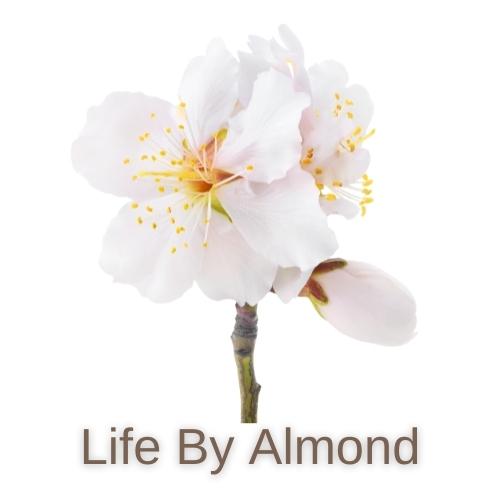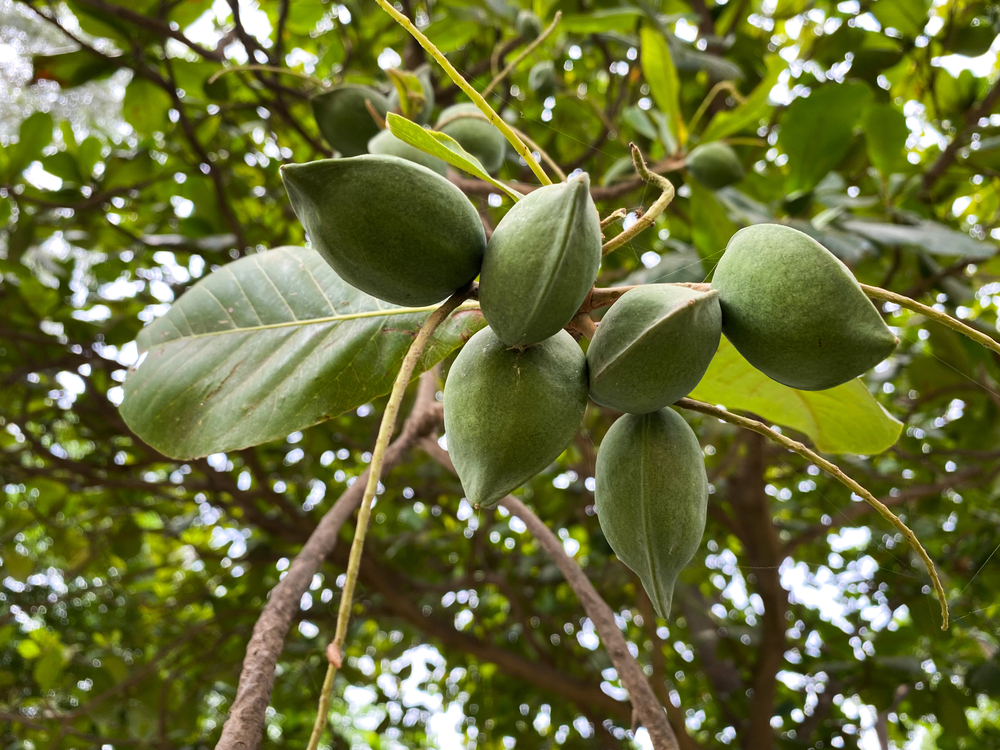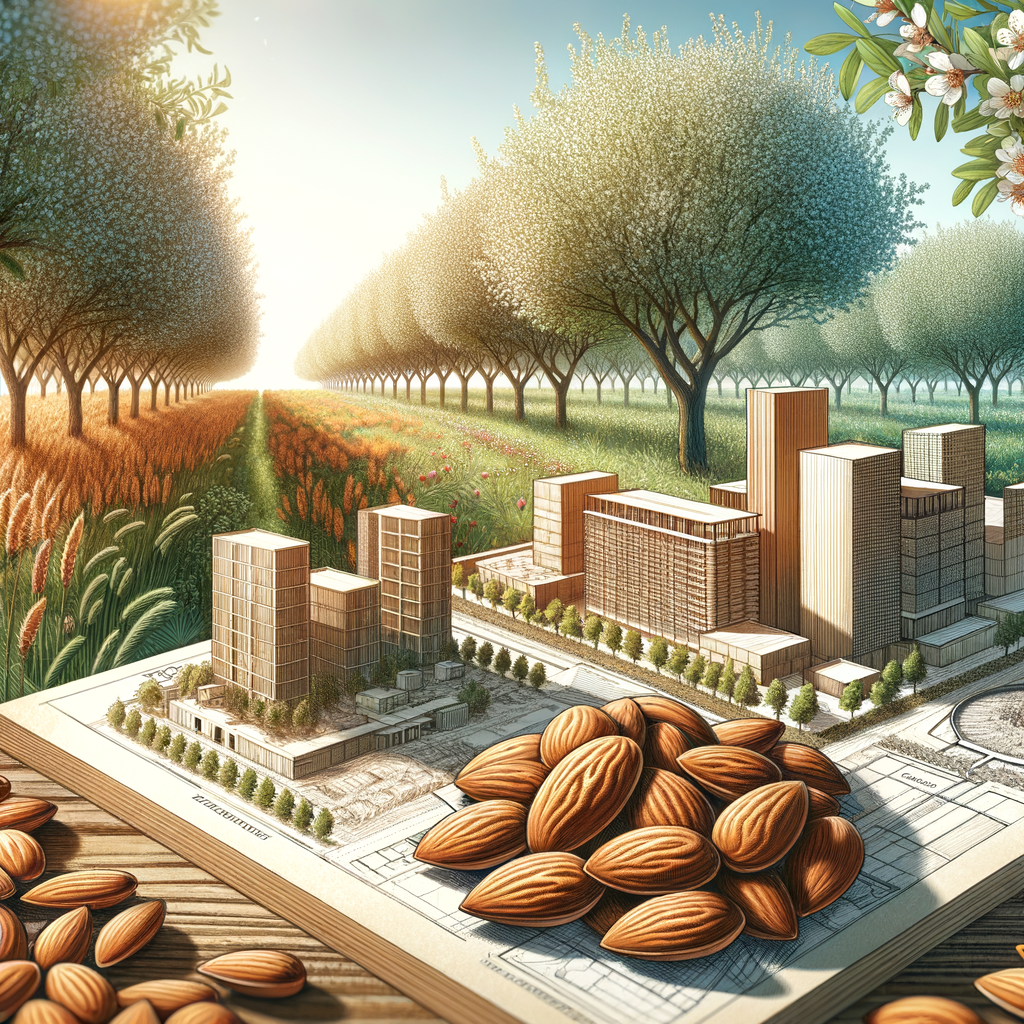When it comes to growing almonds, there are two main options: the almond bush or the almond tree. Both have unique benefits and drawbacks, so which one should you choose?
In this blog post, we will discuss the pros and cons of each option and help you decide which is the best choice for you!
Almond Bush Or Tree: Which One Should You Grow?
When deciding between a sweet almond bush or an almond tree, there are a few things to consider.
First, think about the space you have available. An almond tree can grow quite large, so a sweet almond bush may be a better option if you have limited space.
Second, consider how much time and effort you will put into caring for your plants.
Almond trees require more pruning and care than sweet almond bush care, so a brush is probably the way to go if you’re looking for a low-maintenance option.
Finally, think about the aesthetic you’re hoping to achieve. Trees are more formal-looking, while deciduous shrub has a more natural appearance.
Ultimately, the decision of which type of plant to grow is up to you. If you take the time to consider your needs and preferences, you’ll be sure to choose the correct option to grow sweet almond verbena.
Read More: Best Fertilizer for Almond Trees: Our Top 10 Picks
What Are Almond Bushes And Almond Trees?

Almond bush is a common name for several plants in the genus Prunus and may refer to:
Prunus dulcis, native to Iran and Southwest Asia, is also known as sweet almond or candy almond. Prunus glandulosa, native to China, is also known as the Chinese almond or penghulu. Prunus japonica, small tree native to Japan and Korea, is also known as the Japanese almond or Korean almond.
The plant is related to peach and flowering plum trees. Almond trees produce fruit that is technically a drupe, not a nut.
The outer fleshy part of the fruit encloses the pit, or stone, which contains the kernel or edible portion of the almond.
Flowering almond fruits are about 1-2 inches long and have a leathery greenish-gray outer skin that turns brown when ripe. The mucilaginous inner flesh clings to the stone and can be either pale yellow or pinkish in color.
Each stone contains one to two kernels that are used for culinary purposes.
The kernel of the almond fruit is encased in a hard shell that must be removed before eating. To remove the body, almonds are first blanched in boiling water for a few minutes.
This loosens the skin so that it can be easily peeled off. The peeled almonds are then roasted to enhance their flavor and texture.
Roasted almonds can be eaten as a snack or used as an ingredient in various dishes. Almond oil can also be extracted from the kernels and used for cooking or cosmetics.
Ten Benefits Of Growing An Almond Bush

Almond bushes offer a unique and beautiful addition to any garden, as well as a variety of benefits.
Here are ten reasons to consider adding an almond bush to your yard:
- Almond bushes are low-maintenance. They are drought-tolerant and don’t require pruning or heavy fertilization or wet soil.
- Almond bushes are fast-growing. They can reach up to 20 feet in height and 12 feet in width within just a few years.
- Almond bushes are good for the environment. They help to improve air quality by absorbing carbon dioxide and releasing oxygen.
- Almond bushes can provide shade and privacy. Their dense foliage can provide welcome relief from the hot summer full sun.
- Almond bushes are attractive to birds and other wildlife. Flowering almond provide nectar for bees and other pollinators, while their fruits attract birds such as finches and jays.
- Almond bushes are edible. The fruits of the almond bush can be eaten raw, roasted, or made into flour or oil.
- Almond bushes have medicinal properties. The almond bush’s leaves and bark have been traditionally used to treat various ailments, including coughs, colds, and stomach problems.
- Almond bushes have decorative value. Their pretty flowers and glossy leaves make them suitable for use as an ornamental plant in the garden or home landscape.
- Almond bushes are easy to propagate from cuttings or seedlings. This makes them ideal for those who want to start their own mini-orchard at home!
- Almond bushes make a great gift! Giving an almond bush to a friend or loved one is a thoughtful way to show you care about their well-being and the environment.
Keep Reading: 6 Best Tree Nettings To Protect Fruit Trees From Birds And Animals
The Benefits Of Growing An Almond Tree
The almond is a versatile and delicious small tree nut that can be used in sweet and savory dishes. But did you know that almond trees also offer many other benefits?
They are relatively drought-tolerant, making them an excellent choice for growers in dry climates. They are also fast-growing, reaching full size in just a few years.
In addition, almond fruit trees are relatively pest-resistant, requiring fewer pesticides than other crops.
And as an added bonus, the flowers of the almond tree are gorgeous, making them a welcome addition to any landscape.
So if you’re looking for a nut tree that is both delicious and versatile, be sure to give the almond tree a try. You won’t be disappointed!
How To Decide Which Option Is Best For You?
Deciding which option is best for you can be challenging. There are a lot of factors to consider, from cost to quality to convenience.
But with some research, you can determine which option is the right fit.
First, consider your needs. What are you looking for in a product or service? Once you know what you need, you can start to narrow down your options.
Next, compare costs. While cheaper options may seem appealing initially, they may not offer the same quality or features as more expensive options. Finally, look at reviews and testimonials.
Hearing from others who have used the product or service can give you a good idea of what to expect. By doing your research, you can feel confident that you’re making the best decision for you.
Final Thoughts
Almond bushes are an excellent choice for gardeners of all experience levels between almond bush or tree. From their easy-to-grow nature to their myriad health and environmental benefits, these trees have a lot to love!
Whether you’re looking for an edible crop or simply want to enjoy the beauty of flowering almond an almond bush is sure to please.
So why not give one a try today? You won’t be disappointed!
Thanks for reading!
Keep Reading: 6 Best Tree Nettings To Protect Fruit Trees From Birds And Animals








